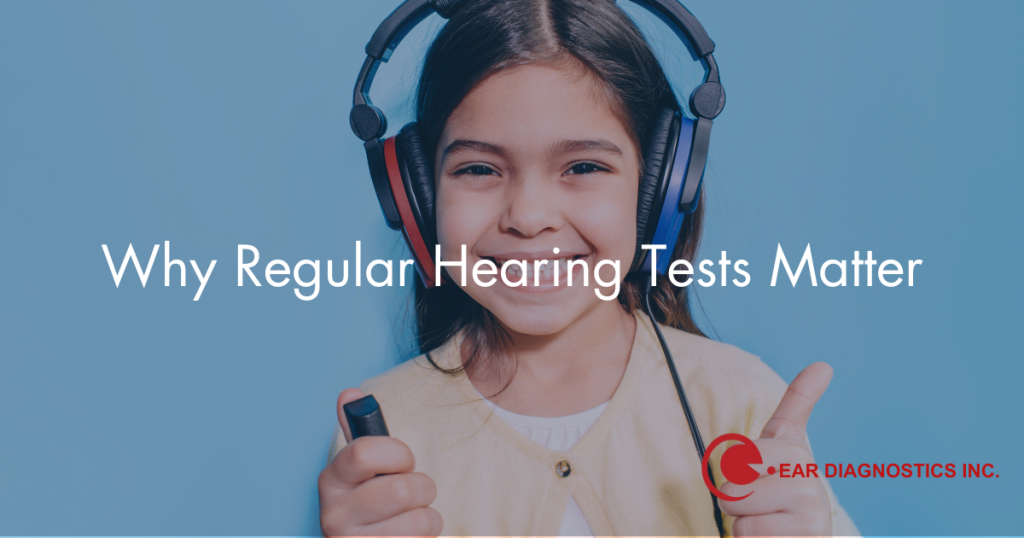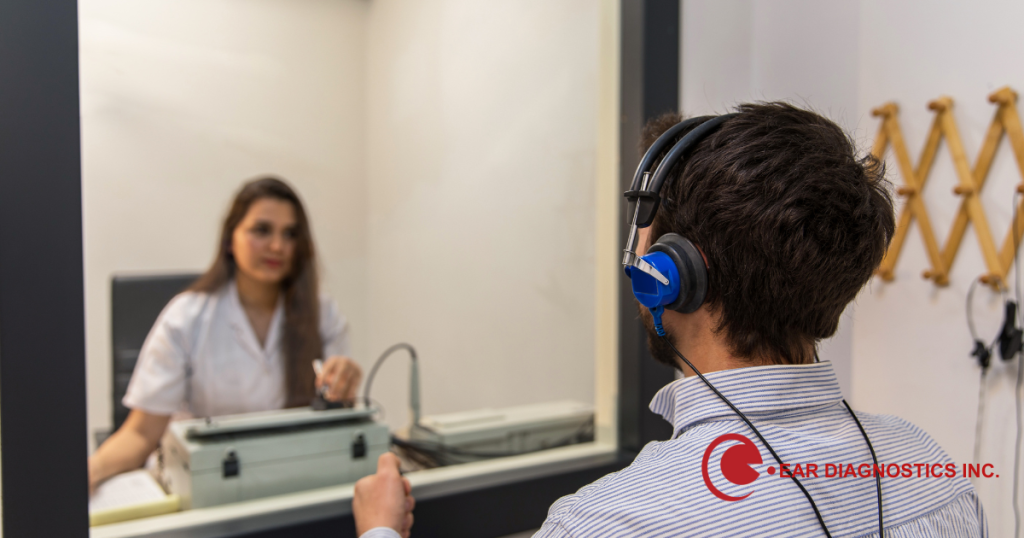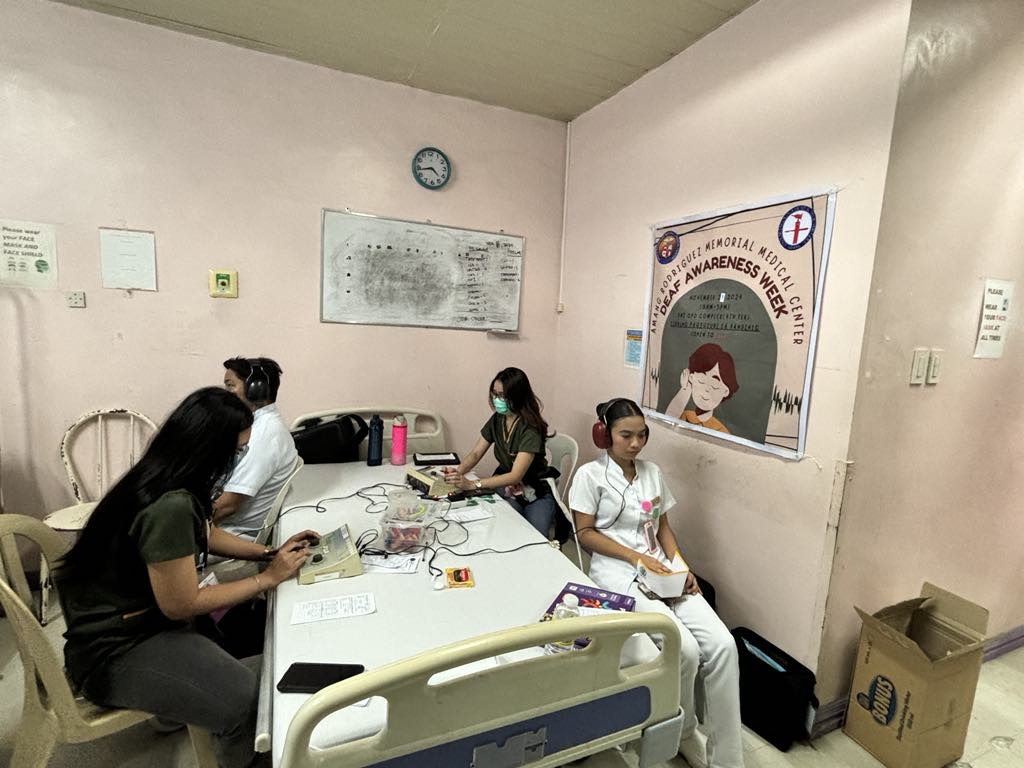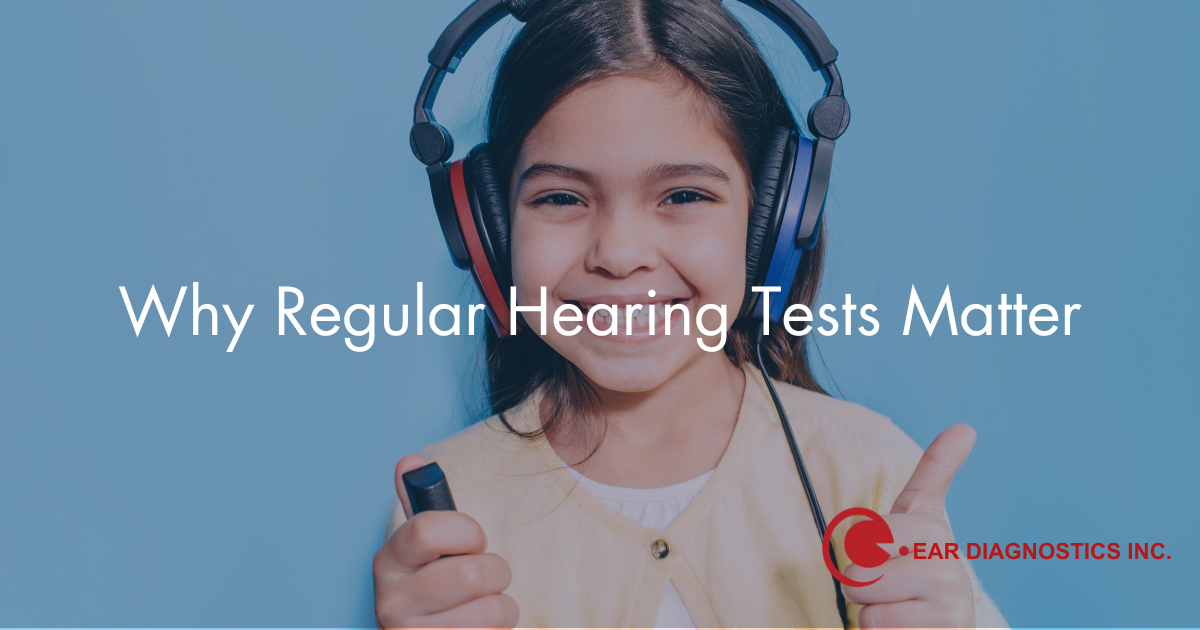The gift of hearing allows you to enjoy the worlds’ sound. It enables you to listen to music, converse, and hear your loved ones laugh. Although hearing is one of the most important senses, people usually take their hearing health for granted because of the busy modern life.
Hearing problem doesn’t announce itself. It comes in quietly, usually unnoticed until the damage is almost untreatable.Ignoring the state of your hearing health can have severe negative effects on your general well-being.
This article will talk about the importance of regular hearing tests, the risks that come with neglecting your hearing health, and the benefits of early hearing problem detection.
The Importance of Regular Hearing Tests
Early Detection
Hearing loss, whether gradual or sudden, can be challenging to notice in its early stages. The gradual decline of your hearing health can make it difficult to recognize the extent of the problem until it becomes more severe. Regular hearing tests can help detect hearing issues before they become significant.
Prevention is Key
Regular hearing tests are not only about detecting existing problems but also about preventing future issues. By monitoring your hearing health, you can identify changes and act to protect your hearing from potential damage, such as loud noise exposure or other risk factors.
Enhancing Quality of Life
Your ability to hear influences your daily interactions and experiences. Untreated hearing loss can lead to feelings of isolation, frustration, and even depression. By addressing hearing issues through regular tests, you can maintain a better quality of life and continue to enjoy the sounds and connections that matter most.
Tailored Solutions
Should a hearing issue be detected during a test, it can often be addressed with tailored solutions such as hearing aids, assistive devices, or medical treatments. Early detection means early access to these solutions, allowing you to address the problem promptly and effectively.
Baseline Record
Regular tests provide a baseline record of your hearing health. These records serve as a reference point for monitoring changes in hearing health over time and for diagnosing and addressing potential hearing issues.
The Risks of Neglecting Your Hearing Health
Social Isolation
As hearing loss progresses, individuals may find it increasingly challenging to engage in conversations, attend social gatherings, or participate in group activities. The world becomes quieter, and connections with loved ones might be affected.
Communication Breakdowns
Effective communication is the backbone of relationships, both personal and professional. Neglecting hearing health can result in misunderstandings, miscommunications, and frustration. In personal relationships, this can lead to strained connections, while in the workplace, it may hinder productivity and teamwork.
Cognitive Decline
A research suggests a strong connection between untreated hearing loss and cognitive decline. The brain works tirelessly to make sense of sounds, and when it struggles due to hearing impairment, it can lead to mental fatigue and may even contribute to conditions like dementia.
Safety Concerns
Important auditory cues, such as alarms, sirens, or approaching vehicles, might go unnoticed, potentially leading to accidents or dangerous situations. Aside from your social and emotional well-being, your physical safety is at stake as well.
Delayed Intervention
The longer hearing issues go unaddressed, the more challenging they can become to treat. Early detection and timely treatment are key to managing and mitigating hearing loss effectively.
What Happens During A Hearing Test?
During a hearing screening, a simple and quick evaluation of an individual’s hearing is conducted to identify whether there may be a hearing problem that requires further evaluation. Hearing screenings are often the first step in assessing hearing health and are commonly performed in various settings, such as schools, healthcare facilities, or by audiologists.
Here’s what typically happens during a hearing screening:
- Pre-Screening Questions: The process often begins with a few questions about the individual’s medical and hearing history. This information can provide valuable context for the screening.
- Pure-Tone Audiometry: The most common method used in hearing screenings involves pure-tone audiometry. The individual wears headphones and listens for tones played at different frequencies (pitches) and volumes. They are typically asked to raise their hand or press a button when they hear the tones.
- Response Evaluation: The results are recorded on an audiogram, a graph that displays the softest sounds the individual can hear at different frequencies. Based on the responses, the audiologist or technician can quickly determine whether there are signs of hearing loss or potential issues.
- Referral for Further Testing: When a person fails the hearing screening, they are typically referred for a full diagnostic hearing evaluation. The audiologist conducts this test, and it involves more in-depth testing to determine the nature and extent of any hearing loss or other hearing-related issues.
What Happens if a Hearing Issue is Detected During the Test?
If your ear specialist finds a hearing issue during a hearing test or evaluation, they may recommend further assessments or potential treatment options. These recommendations could encompass the consideration of hearing aids and participation in sound therapy exercises.
Hearing aids offer the means to enhance sound amplification and improve your auditory well-being. Hearing aids differ in size, style, and technology to cater to your specific needs. You should consult with a hearing healthcare professional who can assist you in finding the most suitable hearing device that is aligned with your lifestyle requirements.
There are three primary options to consider:
- Behind the Ear (BTE): These devices snugly rest behind your ear, connecting to a customized mold that is individually tailored to fit the contours of your ear.
- In the Ear (ITE): Designed to effortlessly nestle in the outer ear bowl, these devices are particularly well-suited for individuals experiencing mild-to-moderately-severe hearing loss.
- In the Canal (ITC): These minuscule devices are made to fit securely within your ear canals, making them an excellent choice for those dealing with mild-to-moderate hearing loss.
Conclusion
Just as you prioritize routine check-ups for our general health, your hearing health deserves the same attention. By recognizing the significance of these tests, you empower yourself to detect potential hearing issues early, enhancing your overall quality of life.
These regular hearing tests ensure that you can continue to enjoy the sweet symphony of life and connect with your loved ones. You should consider these tests as your investment to your auditory health, ensuring that you continue to enjoy your life for years to come.
If you feel you need a hearing test, visit our services page and send us a message.











